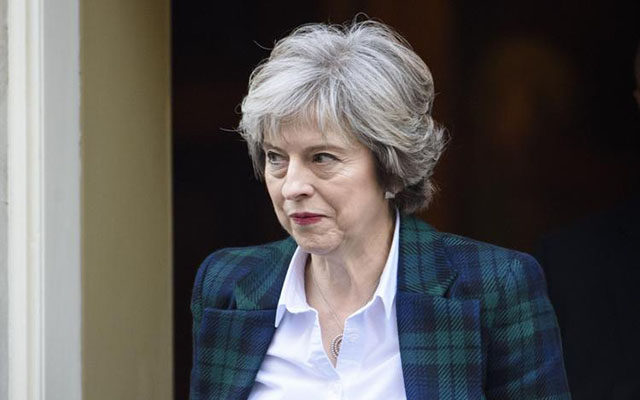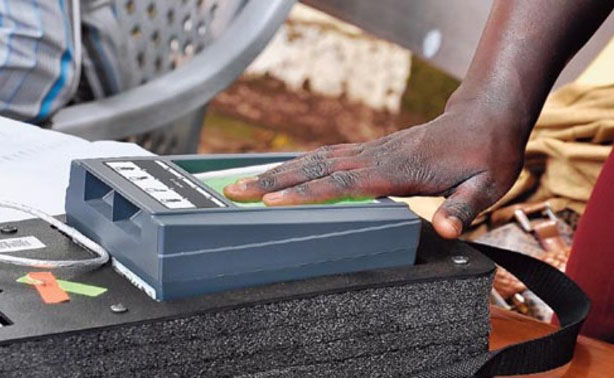Brexit: Why is Zim not taking advantage?

Nick Mangwana View from the Diaspora
Zimbabwe’s last ambassador to Britain Mr Gabriel Machinga left three years ago. It took a very long time for a replacement to be nominated.We learn that Zimbabwe nominated a new Head of Mission later, but Great Britain rejected this particular individual for what some might call emotional reasons.
This is said to be something to do with how this individual benefited from the Land Reform Programme in Zimbabwe. Since then there has been what one might call a diplomatic standoff between the two countries, Zimbabwe wants their choice to be accredited.
Britain is not happy with the choice. So three years later we have a technical downgrade of status of the Zimbabwean Mission in London. The Mission is now headed by a chargé d’affaires while the British Mission in Zimbabwe is headed by an Ambassador.
It is an effect on the diplomatic output of our Mission in London. Now this is not an indictment on our man in London and his team who are keeping things stable and coasting along. It is just unfair to expect them to adequately assist Harare in chatting a good diplomatic pathway and strategy in the absence of an accredited ambassador during Brexit. Opportunities are lost and opportunities will continue to be lost. There is a lot for Zimbabwean industry and commerce to gain from Brexit. Isn’t Zimbabwe losing a trick here?
Now, relations between Britain and Zimbabwe are what they are. Since the Tory governments of both David Cameron and Theresa May came to power, they have not really gone out to attack Zimbabwe. They have not said anything that would escalate hostilities. Maybe one could say they just ignored Zimbabwe. This is a complete shift from the terse exchange of expletives which was hardly diplomatic in the Blair/Brown years.
If this “indifference” is taken together with other signs, one would not be too wrong to interpret it positively. The United Kingdom regularly issues Travel Advice for certain countries. The ones issued for Zimbabwe used to be quite unreadable because of the propaganda, misinformation and distortions in there.
But the language and substance contained in there has been improving a lot giving positive signals. The most recent was updated on September 18, 2017 and will be produced in full below to illustrate the point;
“You should avoid political activity, or activities which could be considered political, including political discussions in public places and criticism of the President. You should avoid all demonstrations and rallies. The authorities have sometimes used force to suppress demonstrations.
“There’s a moderate level of crime in Zimbabwe. Remain vigilant, especially after dark, and make sure accommodation and vehicles are secure. “Always carry identity documentation or a copy of your passport. “Holiday and business visas are available at the port of entry. Don’t violate the terms of your visa.
Dual British-Zimbabwean nationals who travel to Zimbabwe must have a valid travel document to re-enter the United Kingdom. It’s not possible to re-enter the UK using a Zimbabwean passport or emergency travel document without a visa or entry clearance endorsed. “Availability of fuel fluctuates. Keep cars topped up and carry sufficient fuel for long journeys.
“Almost all transactions are conducted in US dollars. Zimbabwe is currently experiencing a shortage of cash. It may not be possible to make cash withdrawals using an international bank card. Make sure you have enough money in US dollar notes for your visit, or check with your tour operator that card payments will be accepted. In November 2016, Zimbabwe introduced ‘bond notes’ as legal tender. Officially these are at 1:1 parity with the US dollar and are only legal tender within Zimbabwe.
“Air Zimbabwe has been refused permission to operate flights to the EU because the airline has been unable to demonstrate that it complies with international air safety standards. British government employees travelling to and within Zimbabwe have been advised to use carriers that aren’t subject to the EU operating ban. See Air travel <https://www.gov.uk/foreign-travel-advice/zimbabwe/safety-and-security>
“Although there’s no recent history of terrorism in Zimbabwe, attacks can’t be ruled out. See Terrorism <https://www.gov.uk/foreign-travel-advice/zimbabwe/terrorism>.
“If you’re abroad and you need emergency help from the UK government, contact the nearest British embassy, consulate or high commission <https://www.gov.uk/government/world/embassies>.
“Take out comprehensive travel and medical insurance <https://www.gov.uk/foreign-travel-insurance> before you travel.” Some people might not fully agree with some of the things said in there, but put in the context of our history and past relationships as well as previous communiqué the Travel is not hostile and almost accurate. The relationship between Zimbabwe and Britain has been in a negative cycle for a long time. It is not benefiting anyone. Least of all Zimbabwe.
While people are talking of Britain facing some kind of isolation, is it not the time to cement closer ties when negotiating with Britain will be an advantage?
Is it really in the best interests of Zimbabwe for Britain to negotiate the whole Brexit transition while Zimbabwe has no Ambassador in London? Is it beneficial to our country that countries with over a century of relationship remain in some kind of a diplomatic freeze?
These are questions which those imparted of chatting our foreign policy vision should grapple with. Is the UK a bit vulnerable because of Brexit? Possibly. There are countries that will benefit massively more than Zimbabwe if they manage to leverage their advantages. These are countries with big populations like Nigeria and India for example.
But Zimbabwe with its highly literate population, good infrastructure (which needs revamping) and strong cultural and historical links should not be left out. If we don’t take advantage of this historical happening the next generation will not forgive us.
This is the time our country’s leadership should show shrewd political calculations by matching a good rhetoric to national interests. The relationships we should build with other countries like Britain should be based on substantive current issues and not yesteryear differences and stand-offs.
Brexit presents countries like Zimbabwe with a lot of trade and economic opportunities and it is self-defeating to be wrapped up in a time warp and not make overtures to our economic outcomes.
It is a gross mistake to sit by the side-lines and exclude ourselves from a process, which eventually benefit our people and country. Great countries were built on pragmatism and vision rather than sentiment.
Brexit can be good for the Zimbabwean economy and British and Zimbabwean relationships. All we need to do is to open dialogue. We fought against British colonialism. But right from Independence we had our army integrated with the help of the British Military Advisory Technical Team (BMATT) which remained in Zimbabwe for the next 20 years.
It means while we did not totally ignore our historical contradictions, we looked at areas of agreement and built on them. We should still be able to do that again today.
Marc Benioff said, “people who lose their relevance get stuck in the past because they are no longer in the present moment”. That can easily be applied to countries. And Zimbabwe should not find itself in this rut where eventually other countries it is connected to will consider it dead weight. There is business to be done here.
South Africa and Egypt are the UK’s two biggest African trading partners. These two export around eight billion pounds a year to the UK.
Zimbabwe is next door to South Africa and over the last few years some Zimbabwean agricultural products have started appearing on the British market when the sanctions regime was massively scaled down.
Is it not time we begin to see a proper escalation of this trade led from the front by the government. Zimbabwe’s developmental aspirations will not be met by the pursuit of emotional diplomacy. We need coherence and consistency in our foreign policy.
A lot has already been said about the need for our foreign policy to reflect our national interests. This columnist contends that with around 300 000 Zimbabwean families in the UK. We cannot ignore the relationships with the United Kingdom.
Zimbabwe and the United Kingdom need a programme of structured engagement on bilateral issues. We can’t have a relationship that just drifts 20 years after New Labour came to power and send relationships into a tailspin. There should be something cogent that is going on and can be pointed at institutional level between the two countries, which serve mutual interests.
There is a serious institutional shift in Europe and we don’t seem poised to find our own niche therein. Some say because of the complexity of the relationships between Zimbabwe and the United Kingdom negotiations between the two might enter the emotional territory too much.
That’s a valid argument. How about negotiating as a bloc? What is the sadc strategy on Brexit? Brexit is not some event which is happening is some Western continent which has absolutely nothing to do with Africa, because it has.
sadc should be ahead of their game in holding parallel trading negotiations with Britain at the time it is involved in its Brexit negotiations. While this might seem to give Britain the leverage against the EU, it also gives sadc the leverage against Great Britain.
South Africa is already ahead in its Brexit strategy. But it would also help them if they do as a sadc regional bloc. But as for Zimbabwe, it will do well to align its national objectives with its diplomacy.









Comments